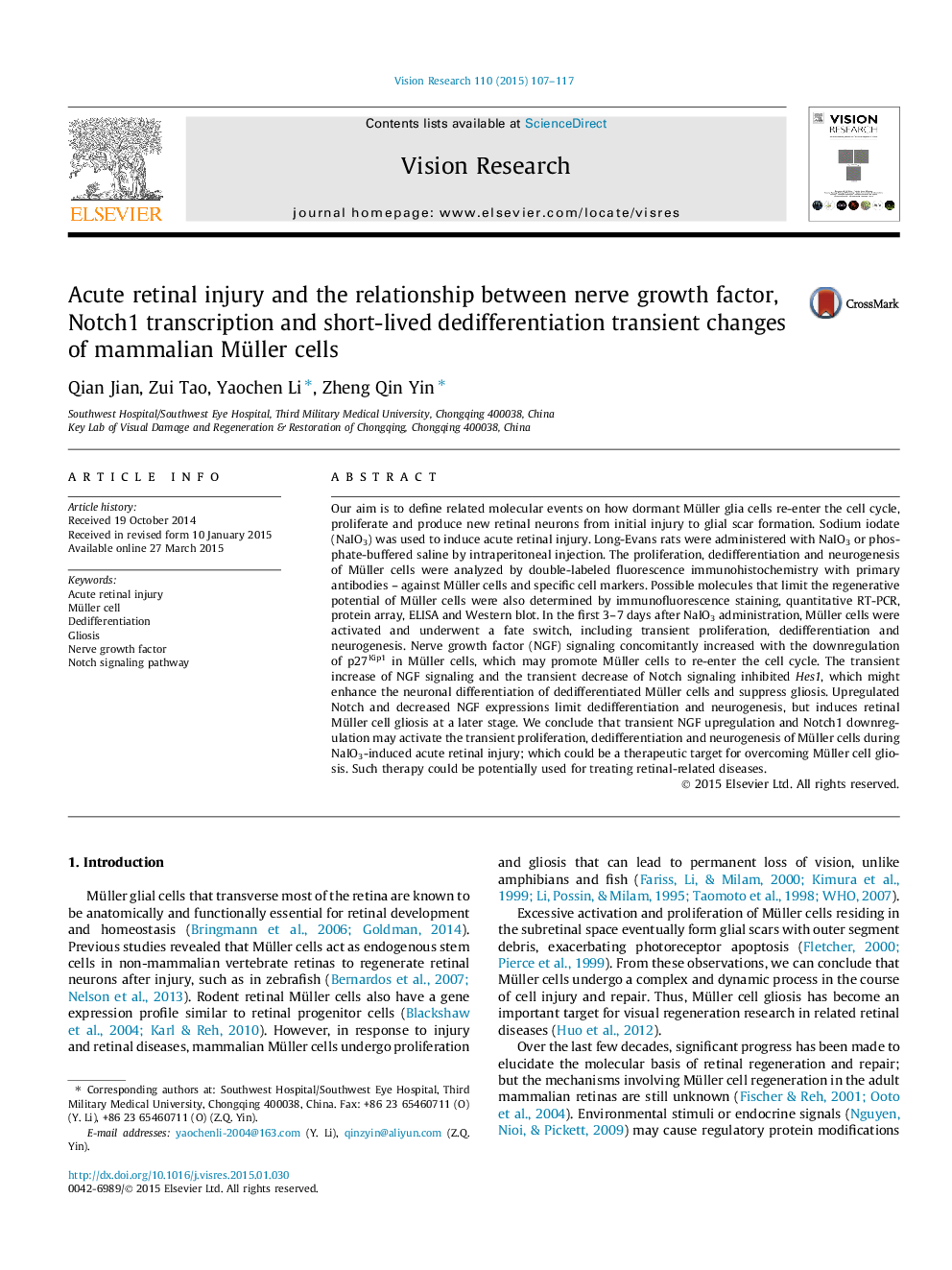| Article ID | Journal | Published Year | Pages | File Type |
|---|---|---|---|---|
| 6203231 | Vision Research | 2015 | 11 Pages |
â¢Müller cells dedifferentiation depends on “open or closed state” of genes.â¢CyclinD1 and p27Kip1 are key molecules for Müller cells to enter cell cycle.â¢The levels of Notch, target genes and NGF determine the fate of Müller cells.â¢Overexpression of Notch promotes glial scar formation of Müller cells.
Our aim is to define related molecular events on how dormant Müller glia cells re-enter the cell cycle, proliferate and produce new retinal neurons from initial injury to glial scar formation. Sodium iodate (NaIO3) was used to induce acute retinal injury. Long-Evans rats were administered with NaIO3 or phosphate-buffered saline by intraperitoneal injection. The proliferation, dedifferentiation and neurogenesis of Müller cells were analyzed by double-labeled fluorescence immunohistochemistry with primary antibodies - against Müller cells and specific cell markers. Possible molecules that limit the regenerative potential of Müller cells were also determined by immunofluorescence staining, quantitative RT-PCR, protein array, ELISA and Western blot. In the first 3-7Â days after NaIO3 administration, Müller cells were activated and underwent a fate switch, including transient proliferation, dedifferentiation and neurogenesis. Nerve growth factor (NGF) signaling concomitantly increased with the downregulation of p27Kip1 in Müller cells, which may promote Müller cells to re-enter the cell cycle. The transient increase of NGF signaling and the transient decrease of Notch signaling inhibited Hes1, which might enhance the neuronal differentiation of dedifferentiated Müller cells and suppress gliosis. Upregulated Notch and decreased NGF expressions limit dedifferentiation and neurogenesis, but induces retinal Müller cell gliosis at a later stage. We conclude that transient NGF upregulation and Notch1 downregulation may activate the transient proliferation, dedifferentiation and neurogenesis of Müller cells during NaIO3-induced acute retinal injury; which could be a therapeutic target for overcoming Müller cell gliosis. Such therapy could be potentially used for treating retinal-related diseases.
